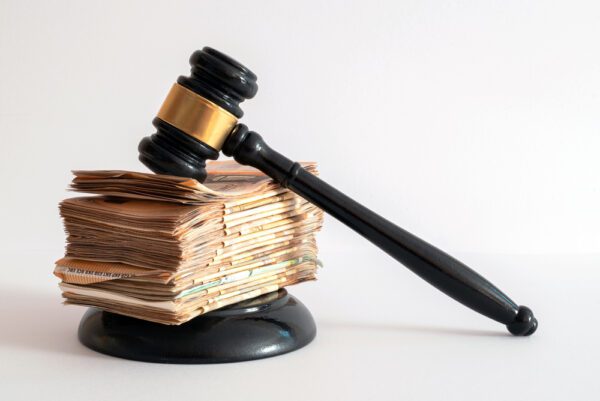
25 June 2020
Director’s liability: bankruptcy risks
In the event of bankruptcy of a company, specific rules apply to the personal liability of the director.
A director is liable to the bankrupt estate, if there is manifest mismanagement in the period of three years before the bankruptcy. There must also be a causal link between this improper management and the bankruptcy of the company. If these conditions are met, the director is liable for the full deficit in the bankrupt estate. So the risk is very high.
Manifestly improper management
Management is deemed manifestly improper if no reasonably thinking director would have acted in this way under the same circumstances. Whether this is the case depends on all factual circumstances of the case and will always have to be determined by the court.
It follows from case law that the manifestly improper performance of duties is expressed through serious irresponsibility, culpable negligence, rashness, recklessness, distressing incompetence, or in clearly acting differently than can be expected from a sensible director in a comparable situation. In addition to fraud, this could be the case, for example, if the company gets into trouble due to irresponsible dividend payments, or very adverse asset transactions (sale of assets at too low a price) in favour of a group company.
In any case, it must be established that the board has fulfilled its task with the objectively determinable knowledge that the creditors of the company would be disadvantaged by the actions of the board. In short, even with this form of director’s liability, it is also a question of whether the director can be made serious personal allegations.
Actual policymaker
The above also applies to a person who, although not formally a director of the company, has (partly) determined the policy of the company as if they were a director. Such a person is referred to as a “de facto policymaker” or “de facto manager”, and is therefore equated with a director for this form of liability in bankruptcy.
With this equalisation, the legislator has tried (in particular) to prevent rogue entrepreneurs from avoiding directors’ liability by having front men act as formal directors, when in fact they are in control of the company – in the background.
Causality
As far as the causal relationship is concerned, it is not required that the manifestly improper performance of duties is the sole cause of the bankruptcy. It is sufficient that the apparently improper performance of tasks has contributed significantly to this result.
Special risks
The management of a company is, among other things, obliged to keep sound records and to publish the annual accounts in good time by filing them with the Trade Register. Filing must take place no later than eight days after adoption of the financial statements by the shareholders’ meeting, and in any event within twelve months after the end of the financial year.
If it turns out that the board has not complied with one of these two legal obligations (or both), a double legal presumption applies to the disadvantage of the director. First, it is irrefutably established that the board has performed its task improperly. Second, it is rebuttable that this improper performance of duties has caused bankruptcy. The director can provide evidence to the contrary against this second presumption by demonstrating that the bankruptcy was predominantly caused by external circumstances.
Do you have a question?
Learn more about directors liability or contact me for advice.
10 July 2024
Directors’ liability: ‘de facto director’
Dutch companies such as B.V.'s have their own legal personality and independently carry their rights and obligations. Directors can only be held personally liable for the debts of a B.V. under special circumstances.
Read more
9 April 2024
Trust office foundations in the Netherlands
The phenomenon of converting shares into depository receipts for shares will raise many questions for the average entrepreneur. In this blog you will read the basic principles and some advantages and disadvantages of trust office foundations (Stichting Administratiekantoor or STAK) under Dutch law.
Read more
5 March 2024
Buyout of minority shareholders
The advantages, requirements and bottlenecks of the forced buyout of the last 5%, the minority shareholders.
Read more
